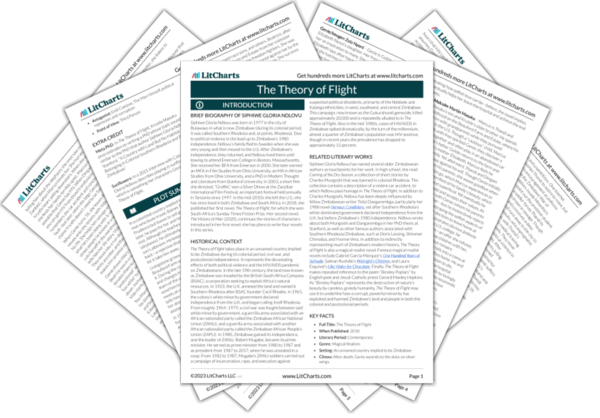African elephant grass, scientific name
cenchrus purpureus, is a tall grazing grass; given that September 3, 1978, is the same day Golide sees elephants crossing the Zambezi and realizes how he can inspire others to fly, it seems likely the grass is supposed to prompt readers to connect Golide’s awe at the elephants with Vida’s unexpected “sense of wonder” here. Since September 3, 1978, is also the day Golide downs the plane carrying Beatrice and Genie hatches from her egg, Vida’s involvement in the events of the day once again highlights how various characters are linked, coincidentally, by a shared history. That implication is further emphasized by Golide’s claim that he knows Vida and Vida’s sense that Golide’s smile is “familiar.”
